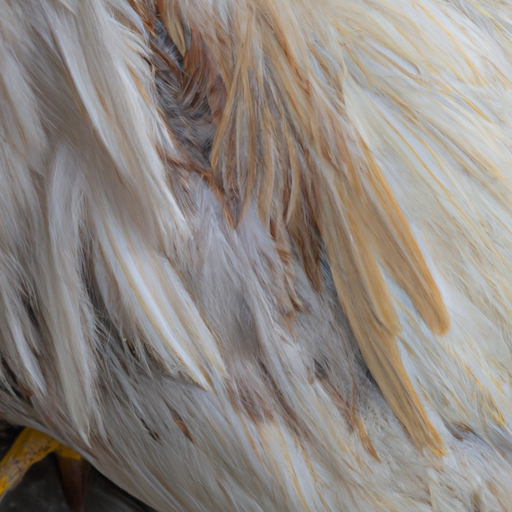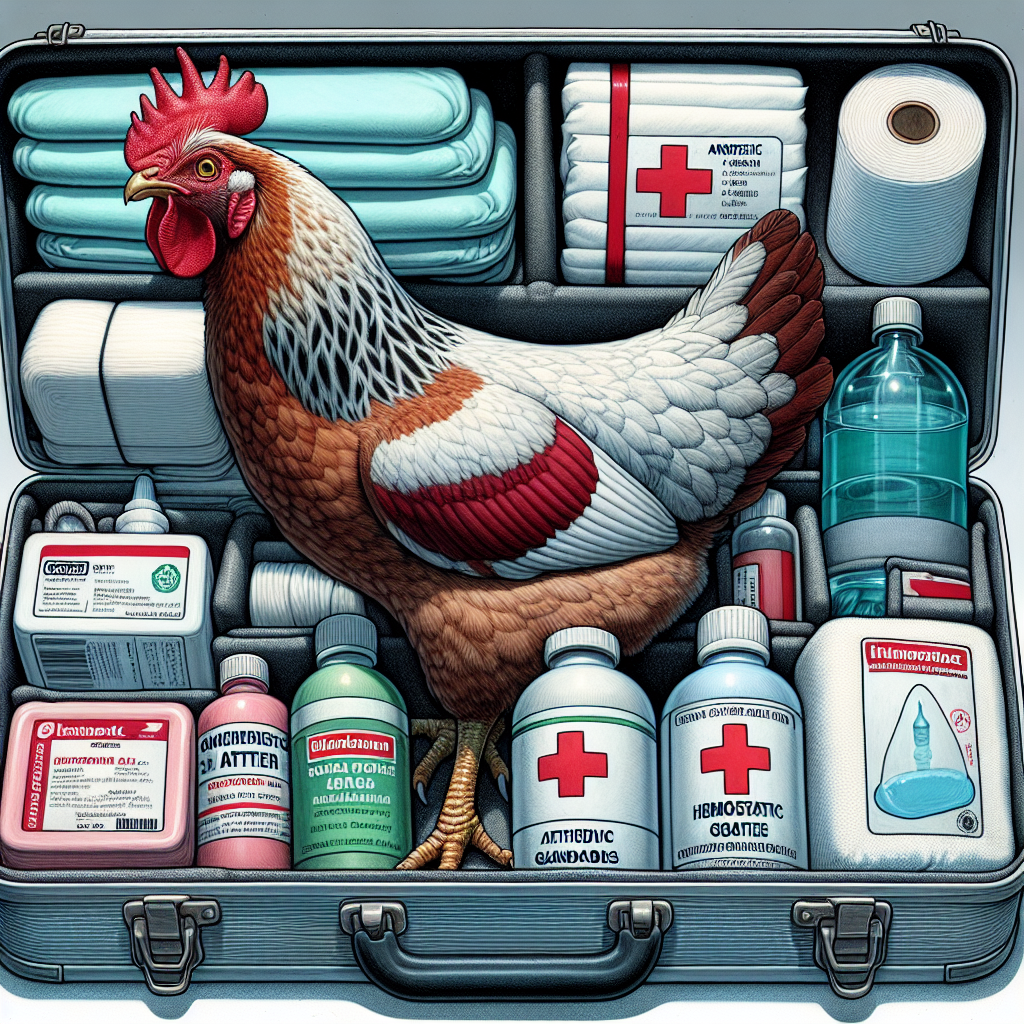If you’re a backyard chicken enthusiast or considering raising a flock of your own, it’s important to be prepared for the various health challenges that can affect your feathered friends. From respiratory infections to flock-wrecking parasites, backyard chickens can be susceptible to a range of diseases and illnesses. In this article, we’ll explore some of the most common ailments that backyard chickens may encounter, equipping you with the knowledge to keep your flock happy and healthy. So, let’s dive into the world of backyard chicken health and discover how to ensure a thriving flock! Keeping backyard chickens can be a rewarding and enjoyable experience, but it’s important to be aware of the potential health issues that can arise. In this comprehensive guide, we will explore the most common diseases and illnesses that can affect backyard chickens. From bacterial and viral infections to respiratory diseases, digestive disorders, neurological diseases, reproductive issues, skin problems, metabolic disorders, and other health concerns, we will cover it all. By understanding these common diseases and taking appropriate preventive measures, you can help ensure the health and well-being of your flock.
Bacterial Infections
Bacterial infections are a common concern for backyard chicken owners. One bacterial infection that poultry can be susceptible to is Mycoplasma gallisepticum. This infection mainly affects the respiratory system and can lead to respiratory distress, nasal discharge, and swollen sinuses. Salmonella spp. is another bacterial infection that can cause diarrhea, decreased appetite, and weight loss. Escherichia coli, commonly known as E. coli, can cause a range of symptoms including diarrhea, dehydration, and reduced egg production. Proper sanitation and hygiene practices, along with regular veterinary check-ups, can help prevent the spread of these bacterial infections.
Viral Infections
Viruses can also pose a threat to backyard chickens. Avian influenza, or bird flu, is a highly contagious viral infection that can cause respiratory distress, coughing, sneezing, and sudden death. Marek’s Disease is another viral infection that primarily affects young chickens and can cause paralysis, weight loss, and tumors. Infectious bronchitis is a viral respiratory disease that leads to respiratory distress, nasal discharge, and reduced egg production. Vaccination programs and biosecurity measures are crucial in preventing the spread of these viral infections.
Parasitic Infections
Ectoparasites, such as mites and lice, can be a nuisance for backyard chickens. They can cause itching, feather loss, and skin irritation. Endoparasites, such as worms, can infect the digestive system and lead to weight loss, diarrhea, and poor overall health in chickens. Coccidiosis is another common parasitic infection caused by protozoa. It affects the intestinal tract and can cause bloody diarrhea, dehydration, and decreased egg production. Regular parasite prevention and control, along with good hygiene practices, are essential in managing parasitic infections in your flock.
Respiratory Diseases
Respiratory diseases can greatly impact the health of backyard chickens. Infectious coryza is a highly contagious bacterial respiratory disease that causes sneezing, nasal discharge, and swollen eyes. Chronic respiratory disease, caused by the bacterium Mycoplasma gallisepticum, can lead to respiratory distress, coughing, and reduced egg production. Adequate ventilation, clean housing, and good biosecurity measures are crucial in preventing the spread of respiratory diseases among your flock.
Digestive Disorders
Maintaining a healthy digestive system is vital for the overall well-being of chickens. Sour crop occurs when the crop, a part of the digestive system, becomes impacted with food, causing a foul-smelling substance to regurgitate. Impacted or blocked crop, on the other hand, occurs when there is a blockage preventing the normal passage of food through the digestive system. Vent gleet, also known as cloacitis, is a condition that causes inflammation and discharge from the vent. Providing a balanced diet, monitoring food intake, and ensuring clean water sources can help prevent digestive disorders.
Neurological Diseases
Neurological diseases can disrupt the normal functioning of a chicken’s nervous system and lead to various health issues. Botulism is a bacterial toxin that can cause paralysis, difficulty in swallowing, and weakness. Encephalomalacia, also known as crazy chick disease, affects the brain and can cause tremors, lack of coordination, and seizures. Avian encephalomyelitis is another viral neurological disease that leads to paralysis and poor muscle coordination. Vaccination, maintaining a clean environment, and proper nutrition are essential in preventing these diseases.
Reproductive Issues
Reproductive issues can occur in backyard chickens and affect their laying ability and overall reproductive health. Egg binding is a condition where the hen is unable to lay an egg, leading to discomfort and potential complications. Salpingitis, or inflammation of the oviduct, can cause decreased egg production and the presence of abnormal eggs. Proventricular dilatation disease is a viral infection that affects the nervous system and can lead to weight loss and reproductive issues. Providing a stress-free environment, maintaining optimal nutrition, and regular veterinary care can help prevent these reproductive issues.
Skin Problems
Skin problems can occur in backyard chickens and may have various causes. Scaly leg mites are external parasites that burrow under the scales on a chicken’s legs, causing raised, scaly and crusty legs. Feather picking can be a behavioral issue or a result of stress or nutritional deficiencies, leading to feather loss and skin irritation. Bumblefoot is a bacterial infection that causes swelling and inflammation on the foot, leading to lameness. Regular inspection, clean living conditions, and a balanced diet can contribute to healthy skin in your flock.
Metabolic Disorders
Metabolic disorders can affect the overall health and productivity of backyard chickens. Fatty liver syndrome, also known as hepatic lipidosis, occurs when the liver accumulates excessive fat deposits, leading to poor liver function and potentially life-threatening complications. Osteoporosis can occur due to poor calcium metabolism, resulting in weakened bones and fractures. Hypocalcemia, or low blood calcium, can lead to muscle weakness, seizures, and even death. Providing a balanced diet, including sufficient calcium, and allowing for regular exercise can help prevent metabolic disorders in your flock.
Other Health Concerns
In addition to the diseases and disorders mentioned above, there are other health concerns that backyard chicken owners should be aware of. Heat stress can occur during hot weather, leading to dehydration, heat exhaustion, and even death. Impact injuries, such as falls or collisions, can result in fractures or internal injuries. Water belly, or ascites, is a condition that causes excess fluid accumulation in the abdomen, leading to poor mobility and breathing difficulties. Providing shade, access to cool water, and a safe environment can help mitigate these health concerns.
In conclusion, maintaining the health of backyard chickens is crucial for their well-being and productivity. By familiarizing yourself with the common diseases and illnesses discussed above, you can take proactive steps to prevent their occurrence. Regular veterinary check-ups, good hygiene practices, proper nutrition, and appropriate preventive measures, such as vaccinations and parasite control, are essential in ensuring the health and longevity of your flock. With proper care and attention, you can enjoy the company of happy and healthy backyard chickens for years to come.




